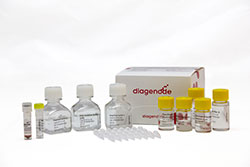White, Shaowen et al.
Incompletely understood mechanisms serve to maintain Epstein-Barr virus (EBV) latency in most B-cell states, in which viral oncogene(s) are expressed but lytic antigens are repressed. Shortly after EBV’s discovery and even before it was named, early pioneers Werne and Gertrude Henle identified that restriction of extracellular arginine de-represses EBV lytic antigens within Burkitt lymphoma tumor cells. However, for nearly 60 years, it has remained unknown how arginine metabolism supports EBV latency. To gain insights, we performed an amino acid restriction screen in Burkitt cell lines. This confirmed that arginine restriction was sufficient to trigger EBV reactivation in Burkitt B-cells and gastric carcinoma models. Arginine restriction strongly impaired de novo pyrimidine biosynthesis, and CRISPR or chemical genetic blockade of pyrimidine biosynthesis enzymes induced EBV immediate early and early lytic gene expression. However, arginine restriction blocked EBV lytic DNA replication and consequently also late gene expression, suggesting an abortive lytic cycle. Arginine restriction triggered DNA damage, which was an important driver of arginine restriction-driven EBV reactivation. Arginine restriction and DNA hypomethylation synergistically increased EBV reactivation. Together, our results highlight arginine and pyrimidine metabolism as potential targets for EBV lytic antigen induction therapy in B and epithelial cell contexts.

